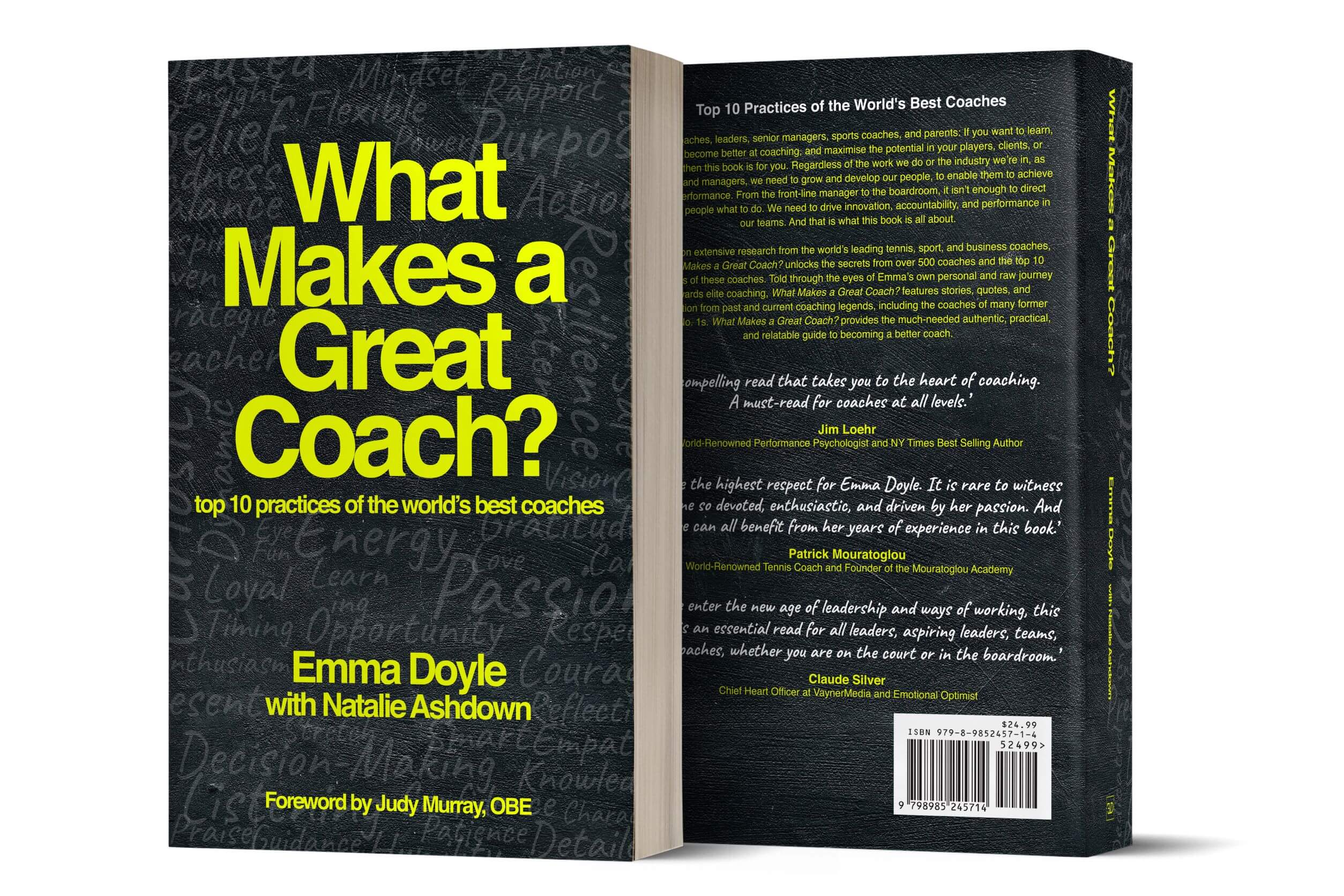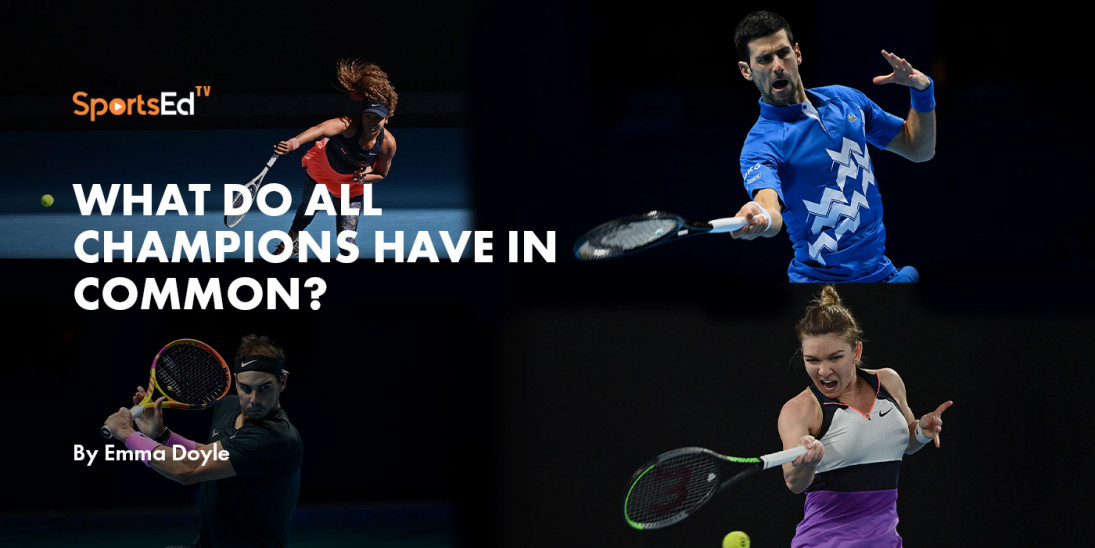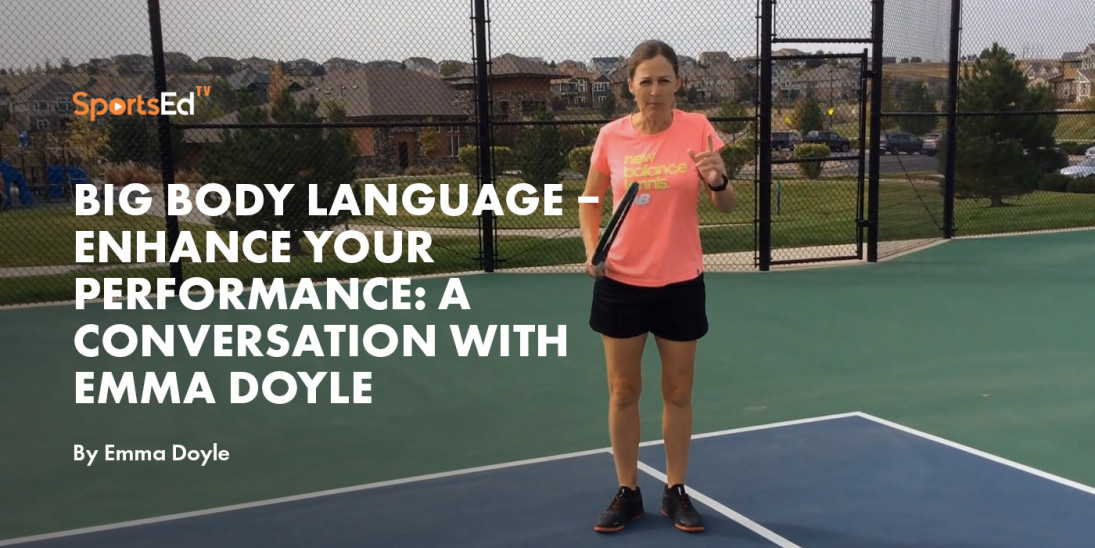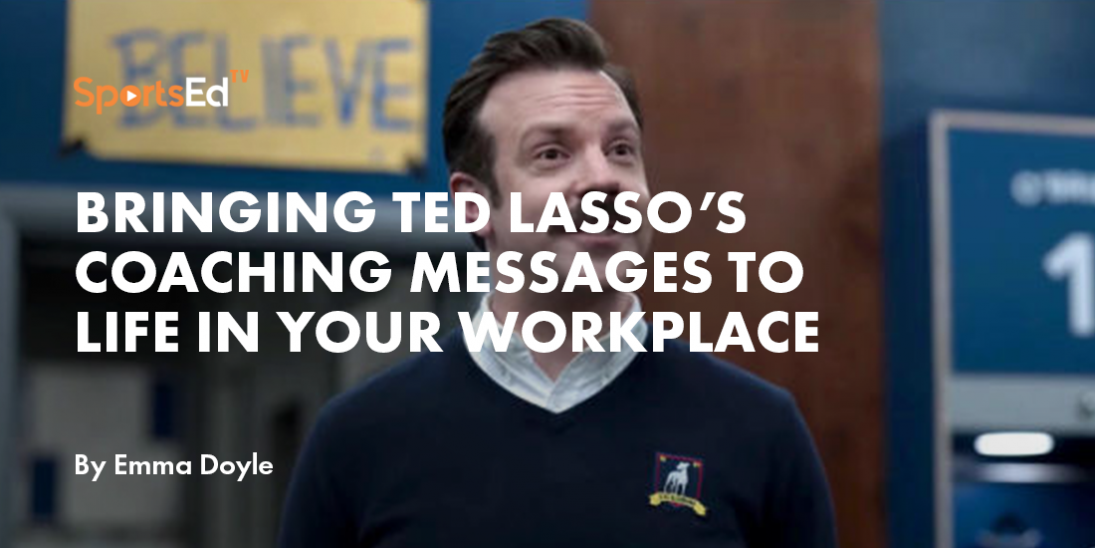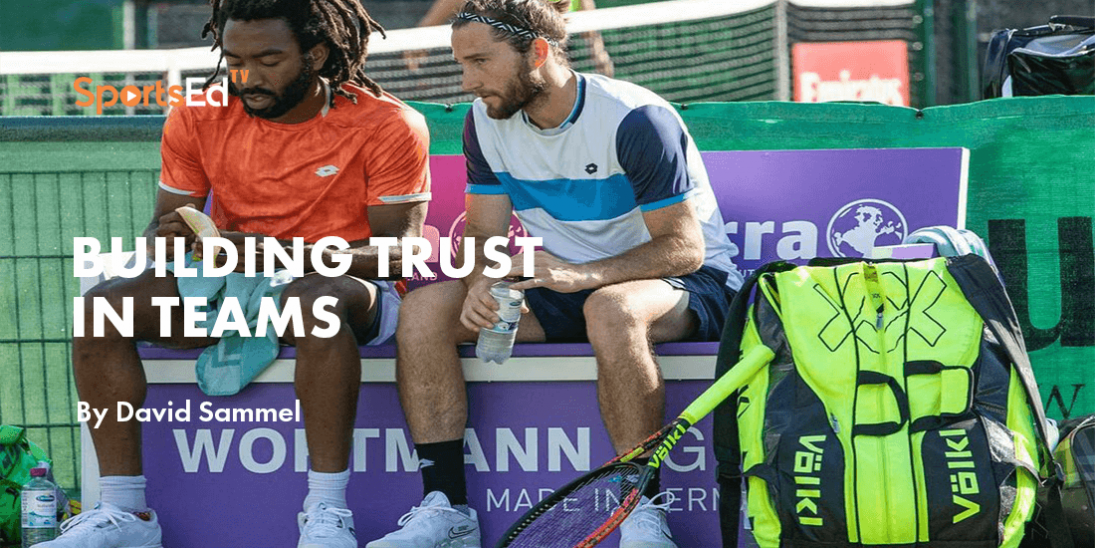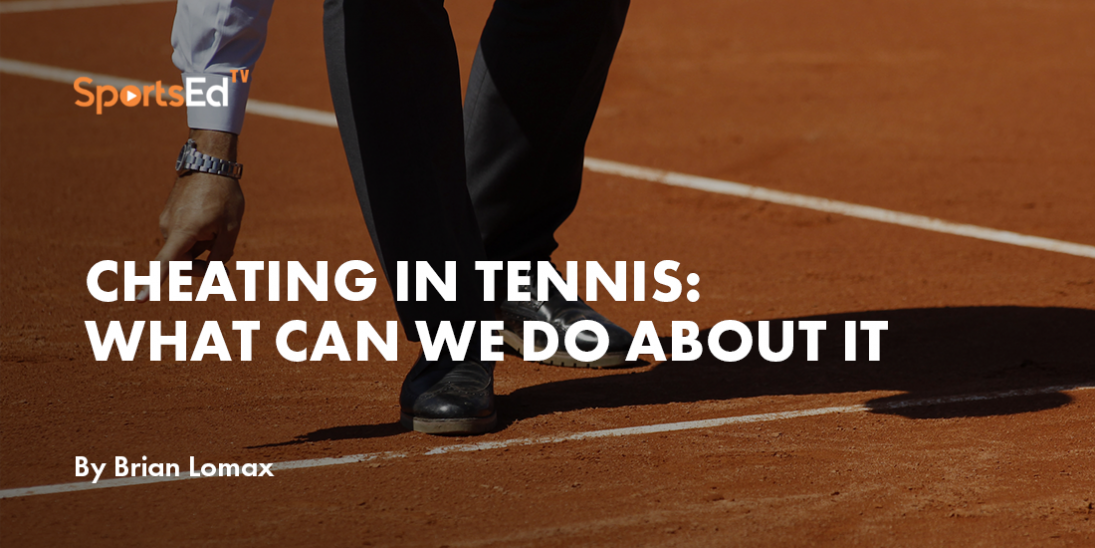Tennis
Welcome and thanks for visiting...

Being the Best Coach You Can Be
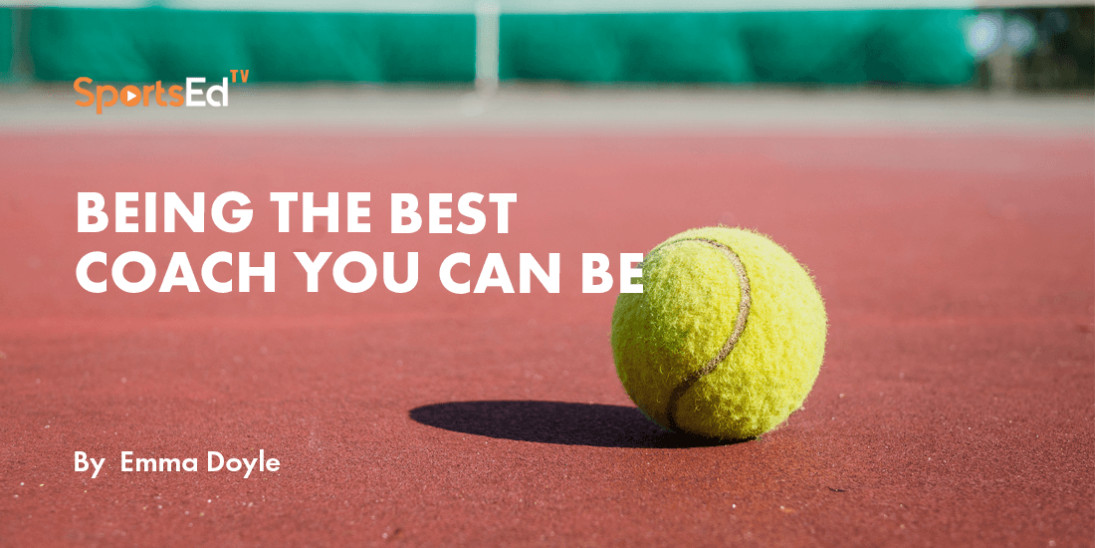
‘Talent is not nearly as important as execution.’
– Roger Crawford, motivational speaker and possibility coach
I want to be the best coach I can be
My first coaching experience was in Melbourne, Australia, at a local tennis club. At fourteen years old, all I wanted to do after school was play sports, especially tennis. Being child number three in a family of four siblings meant that my parents could barely afford one tennis lesson per week. In the mid-1980s, my moneymaking options were either working at the local fast-food outlet or delivering newspapers. I had chosen the latter and was getting paid $7.00 per round that took me three afternoons a week to complete.
Business-minded even at that age, I was painfully aware that this path did not give me a great return on investment for the time and effort I was putting into the job. My tennis coach suggested that if I began tennis coaching two nights a week, instead of the paper round, I could earn the equivalent pocket money, and he would provide an extra private lesson to me at no charge. It was such an amazing opportunity that I was keen to start the very next day. When he agreed, my coaching journey began.
The next afternoon, I arrived at the courts feeling a sense of nervousness and excitement whilst trying not to show it. I was trying to act professionally. I had even spent time the night before applying white shoe polish to the tips of my Dunlop Volley runners to ensure they looked extra clean because I saw clean, white shoes as a sign of professionalism. With very little guidance and no lesson plan, I simply decided to trust my gut and strode out on the court to greet six children of various shapes and sizes.
‘Good afternoon, I’m Coach Emma,’ I announced to the group, liking the ring that ‘Coach Emma’ had to it. ‘I’m your new coach, and I can’t wait to play tennis with you and have some fun. Who’s up for that?’ Six enthusiastic tennis racquets sprung into the air. In no time, balls were flying all over the court.
Whilst I was in fact copying the activities of the coach on the court next to me and thinking of the lessons that I had received myself, I was delighted by how the children responded to my energy and how much I enjoyed the experience. The impact of this first coaching experience was so powerful that I walked off the court with the firm conviction: I want to be the best coach I can be.
Have you maximized your potential as a Coach?
Armed with my new motivation to become the best coach that I could be, I started to observe other coaches. But it wasn’t until several years later that I met David ‘Parko’ Parkin, who gave me insight into how I could get closer to my goal. David Parkin is a former Australian League Football (AFL) player and legendary AFL coach. At the time, he was head coach of the Carlton Football Club – my favorite team since the age of five.
Halfway through my first year at Deakin University, in Melbourne, Australia, studying for my sports coaching qualification, I was summoned to Parko’s office because he wanted to discuss an essay that I had written on ‘being the best coach. Throughout my high school years, I occasionally found myself in the principal’s office for all the wrong reasons. This was partly because skipping Italian class to work on my tennis skills was, in my opinion, time well spent. In this situation, finding myself standing in Parko’s office, I had no idea what was coming next. He peered over his half-rimmed glasses, and in his deep, husky voice, challenged me with the following question, ‘Emma, do you really want to become the best coach that you can be?’
‘Yes, absolutely, this is what I want to do for a living. What do I have to do?’ I replied without hesitation.
‘Well then, Emma,’ he continued, ‘before you can be the best coach, I need to know whether you have maximized your playing potential. Have you gone as far as you can go in tennis?’
The question surprised me. I wanted to blurt out ‘of course’, but I paused for a moment to reflect on my tennis career to date.
I had not had much success in my early junior days at the national or state levels, because I was smaller in build, not as powerful, and simply not as talented as other girls my age. However, in my mid to late teen years, I caught up in height and strength to some of the other girls in my age group. When they were beginning to develop other interests and dropping out of tennis, my skills were increasing dramatically. I also grew up at a local club called Maribyrnong Park Tennis Club in Melbourne, Australia, that had a healthy, fun, team-based, and social atmosphere. Some of my closest friends today are the people that I grew up with from this club. This meant that during my final years of high school studies, I played some of my best tennis and was physically the fittest I had ever been. Having said that, whilst my tennis was improving at an accelerating rate, the odds of playing at a Women’s Tennis Association (WTA) professional level were, unfortunately, unlikely.
As I sat quietly in his office, reflecting, I replayed Parko’s question over and over: Have you maximized your potential?
Tennis player: Unfinished business to see how far I can go
I knew I had unfinished business with tennis and my love of the game was still alive, unlike so many of my previous rivals and teammates. Therefore, I surprised even myself with the response to the question. ‘Parko,’ I said, ‘I haven’t maximized my playing potential. I have unfinished business.’ Parko nodded slowly, waiting for me to continue. ‘I am good enough to play U.S. college tennis,’ I said, ‘and I want to see how far I can go.’
In truth, I had no idea if I was good enough to play college tennis, but within four weeks, I was on a plane to Nashville, Tennessee. I had applied for and secured a full scholarship to play tennis for Middle Tennessee State University (MTSU). This was my first solo adventure and from the very first day it was a memorable one.
It took me 56 hours to travel from Melbourne to my destination, as the connecting flight from Chicago to Nashville was unable to take off because of thick and heavy snow. Not realising that the airline would have paid for my overnight accommodation in a hotel, I attempted to sleep at the gate of my departing flight with my arms tightly wrapped around my tennis racquet bag. As I’m sure you can imagine, the next morning my eyes were bloodshot and my hair disheveled. When my tennis coach picked me up that morning, I can imagine him thinking, ‘My goodness, who have we recruited?’ But he didn’t let on and instead gave me a warm Southern smile combined with a slow and steady drawl that made me feel at ease.
Playing college tennis was one of the most rewarding and memorable experiences of my late teen years. I have continued to encourage the U.S. college tennis pathway for many junior players to help them maximize their playing potential. It is a great way to see how far you can go in the sport, whilst playing for a team and continuing your education.
Unlocking the answers within the tennis player
Upon reflection, Parko was doing what I would refer to as unlocking the learning that lies within the person. He asked a powerful question and then waited for me to reflect and answer the question. He allowed me to find the answers within myself, rather than expressing his opinion first and telling me what to do. This type of coaching is different from the traditional sports coaching approach, where the coach sits on the sidelines or in the balcony observing the tennis player, and then gives directions to the tennis player based on the tennis coach’s technical knowledge.
Parko’s approach in the classroom was not the ‘in your face’ yell-and-tell approach that he might have been known for on the sporting field and is often associated with sports coaching. Instead, it was an approach based on trust that the person in front of you has the answers. Whilst Parko’s approach may not have been in the best interests of the university – encouraging a student to leave his coaching course – he had my interests at heart.
Tennis sporting legend and champion of equality, Billie Jean King said what makes a great coach is ‘a great teacher’. I am grateful to Parko for his teachings and this key coaching moment that generated my call to action to head to the U.S.; and I am extremely grateful that he continues to be a mentor in my life.
The reason this book came to fruition
Parko’s question did more than set me on a journey of maximizing my potential as a college tennis player; it lit a flame of curiosity within me. I wanted to know more about the craft and tools of coaching and in particular ‘what makes a great coach?’ This became my lifelong pursuit and the reason that this book has come to fruition.
Over the past seven years I have asked more than 500 of the world’s top players, sport, and business coaches and even some World No. 1 players: ‘What makes a great coach?’ Whilst the majority of the coaches came from tennis (328 coaches), my research included responses from 71 sports coaches across 21 different sports; and 105 business coaches. 48 different countries were represented in the responses which included equal representation of genders (51% female, 49% male), and one non-binary person.
From the conversations, 151 different characteristics were stated in the answers to ‘What makes a great coach?’ However, after collating the data, I narrowed these down to the ten top characteristics, or as I call them, practices, that we can all pursue.
Whether you’re a sports coach, a corporate coach, a senior leader, a manager, or a parent, you play a role in coaching the people around you; we all do. The purpose of this book is to take you on a journey of reflection so that you can maximize your potential as a coach and answer the question for yourself: ‘What makes a great coach?’
Why is being the best coach you can be so important?
Why is this so important? Well, all the greatest coaches I have interviewed are fascinated about developing a better understanding of people, including themselves. They’re also in pursuit of lifelong learning as mentioned on The Coaching Podcast by Master Professional Coach, Jorge Capestany. And they each want to be remembered as a person who enabled their players to grow and develop, not only as players but as inspirational people.
The same goes for our workplaces today. Regardless of what work we do or what industry we’re in, as a leader or managers, we need to grow and develop our people, to enable them to achieve high performance. It isn’t enough anymore to just direct and tell people what to do. We need to drive innovation, accountability, and performance in your workplaces. A focus on the practices I describe in the book will enable you to do that, regardless of your workplace.
What the corporate workplace can learn from tennis
With that in mind, I encourage you to reflect, rather than just read the table of contents and say, ‘I do that’ or ‘I know that.’ The corporate world can learn a lot from the world of tennis. What I have done through my research is synthesize the top ten characteristics or practices that make a great coach. These are the ten practices that rated highest when I consulted over 500 sports coaches, business coaches, and players. If over 500 world-class coaches have these practices in common, then we can learn from them, regardless of our managerial level or the company we work for, or the industry.
How the book just is structured
As I mentioned, the corporate world can learn a lot from elite tennis and high-performance tennis coaching, so in each chapter, I have shared a personal story and my learnings and experience about becoming a better coach over the past 30 years. My co-author Natalie Ashdown’s experience in corporate coaching and her substantial knowledge about training managers to coach at an international level for the past 20 years, is also reflected throughout the book.
In addition, whilst we have structured the book to give you examples from tennis that illustrate the principles of what makes a great coach, it’s most important and valuable that you know how these practices can be applied to your workplace. So, in each chapter, we explore what the practice is, why it is important to the workplace, and how we can build the practice to be better coaches.
I have also included insights and quotes from many of the people I interviewed throughout my travels. Many of these people are featured on The Coaching Podcast – my podcast which has gone from strength to strength and has clocked up over 30,000 listens. These guests include current and former elite coaches to the World No. 1s and other professionals at the pinnacles of their careers.
At the end of each chapter, you’ll find key questions to enable you to reflect on the practices. As tennis coach and parent of professional player Kim Birrell, John Birrell suggests that a great coach is a non-stop learner. This idea is further supported by the following coaches who responded that a great coach is on a continuous learning journey. They include corporate coach Steve Barlow; organizational transformation coach Charles Hardman; tennis coach Chie Tougas and tennis/yoga coach Margit Bannon. Therefore, the more time that you take in reflecting and answering the questions, the more value you’ll get from this book; you will be building your coaching knowledge at the same time.
So…not a tennis coaching book
So just to be clear, this is not a tennis-coaching book. Whilst I am drawing on my research from over 500 of the world’s leading coaches, and I will use the word ‘players’ in the tennis context, it’s your job to apply the lessons to your own context – business, work, home – and to your own ‘players’ whether they are your clients, team members, subordinates, work colleagues, or children.
Enjoy your coaching and explore what makes a great coach.
Reflection
Take some time to reflect on the following questions and jot down notes below in this book or in a coaching journal. Let’s start with the Parko question and some others to get you thinking:
- What is holding you back from maximizing your potential?
- What is your inner voice saying?
- What are you doing to maximize your potential?
- Who do you need to become to get where you want to go?
- Who can help you?
- What can you take action on that is within your control?



